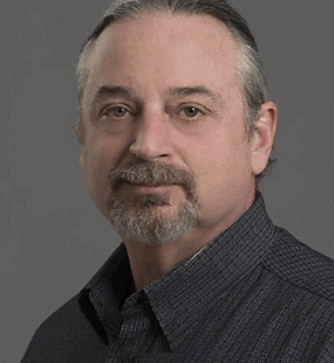
No Comments on Expert Reviewer Profile: Michael Easton, MD 208
Michael Easton, MD
Assistant Professor, Rush University Medical Center
Psychiatrist, The Neuroscience Center & Amen Clinics
Dr. Michael Easton began reviewing with Doody’s Review Service in 1994 and remains one of our most seasoned reviewers today. Dr. Easton has played a pivotal role in assessing the psychiatric book landscape having published 253 Doody’s reviews, many of which align with his expertise in substance abuse and addiction. Doody’s Core Titles 2023 includes five of Dr. Easton’s reviews, including those for The American Psychiatric Association Publishing Textbook of Substance Use Disorder Treatment, 6th Edition, Brady (APA, 2021), The ASAM Principles of Addiction Medicine, 6th Edition, Miller (Wolters Kluwer, 2019), and Addiction Medicine: Science and Practice, 2nd Edition, Johnson (Elsevier, 2020).
Dr. Easton started his medical training at the University of Bologna Medical School while living in Italy. He then returned home to complete his degree at Rosalind Franklin University of Medicine and did much of his clinical training at Cook County Hospital in Chicago. Dr. Easton completed his psychiatric residency at Illinois State Psychiatric Institute (ISPSI), the hub for psychiatric research in the Chicagoland area at the time. He stayed at ISPI and, with the University of Illinois, completed a fellowship in bio-psychiatric research, psychopharmacology, and electro-convulsive therapy (ECT). While there, he continued as a research psychiatrist, developing and implementing studies of pharmacological agents for the treatment of mood and psychotic disorders as well as doing research on the administration of ECT. During this time, he became interested in sleep medicine and circadian rhythm disorders leading to his involvement in some of the early research on bright light therapy for Seasonal Affective Disorders (SAD).
In 1990, Dr. Easton was recruited to the Department of Psychiatry at Rush University Medical Center as an assistant professor. During his time at Rush, Dr. Easton wore numerous administrative, clinical, and research hats. He was initially involved in the Treatment Research Unit, which looked at pharmacological agents in the treatment of mood and anxiety disorders. In the early 1990s, he became the director of the substance abuse program and conducted research on anti-craving agents in the treatment of addictions. In addition to his board certification in psychiatry, he received an added qualification in addiction psychiatry in 1994 as well as a certification in addiction medicine in 1996.
Since his time at Rush, Dr. Easton has had a private practice focusing on the management of treatment-refractory conditions in both hospital and office settings. He has directed the adult inpatient psychiatric units and managed the clinical neurostimulation programs. For over 30 years, Dr. Easton has been involved in the administration of ECT for more complicated treatment-resistant psychiatric disorders. He was among the first group of psychiatrists to be certified in administration of transcranial magnetic stimulation (TMS) upon its approval from the FDA as a treatment for depression.
Dr. Easton has over 10 years of psychiatric research in areas related to the use of medications and ECT in the treatment of psychiatric disorders as well as anti-craving medications in addiction. He has numerous research publications and book chapters in his areas of expertise and has lectured nationally on topics related to pharmacotherapeutic agents and the management of mood disorders, psychosis, and addiction.
Currently, his practice focuses on the use of functional neuroimaging in the management of neuropsychiatric disorders using traditional and integrative treatment approaches. Over the past five years, he has focused on the role of mild traumatic brain injury, infection, toxicity, inflammatory conditions, and their contribution to psychiatric presentations.
Dr. Easton enjoys reviewing books because they keep him up to date on a wide variety of topics and continue building his knowledge base. Titles that he particularly enjoys have included ones that provide a new twist on typically held beliefs as well as ones on advancements in the neurobiology of psychiatric illness and addiction. The books in Dr. Easton’s review catalog provide a great personal and professional benefit, as they form the cornerstone of an exceptional and extensive reference library.


Leave a comment